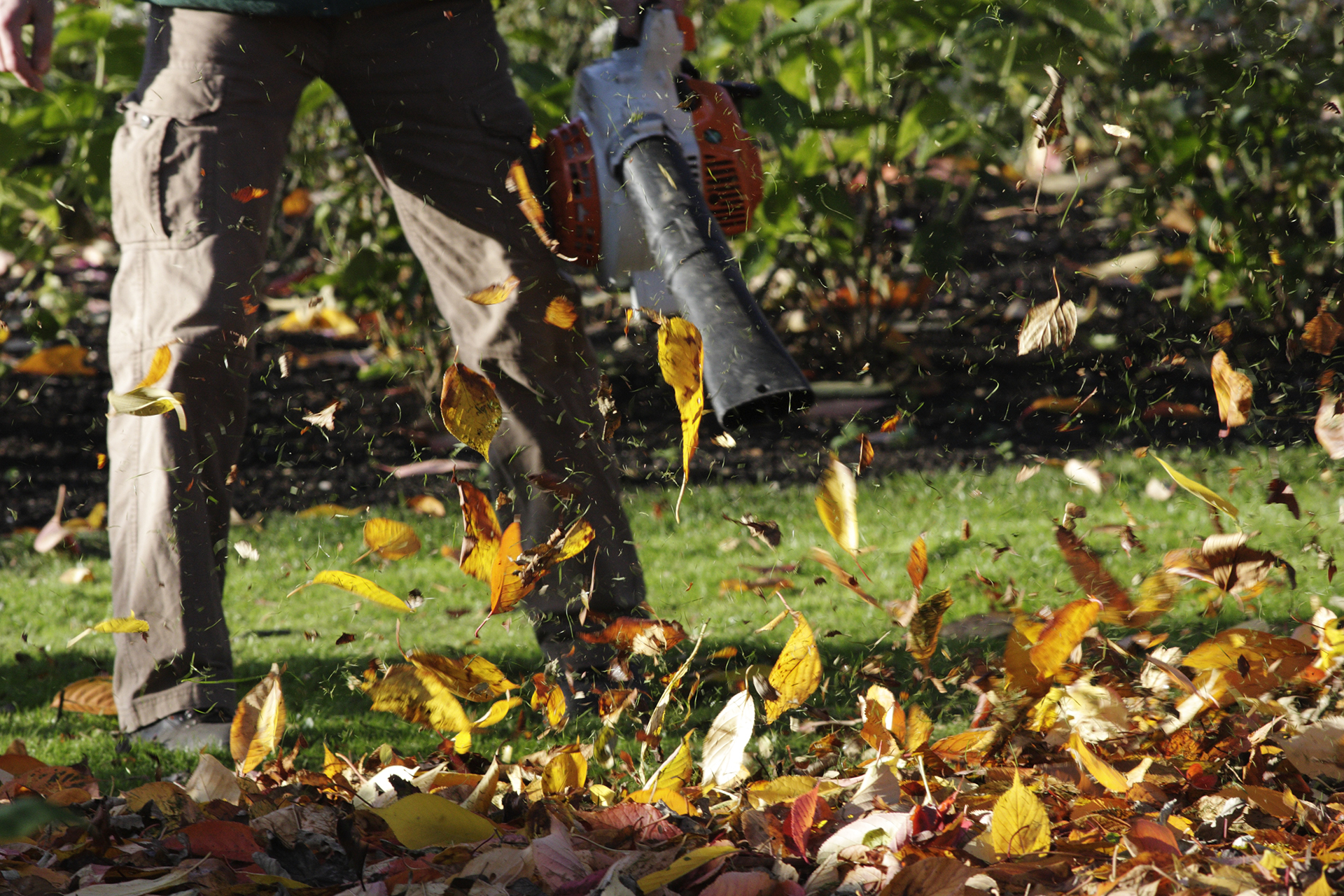Are Leaf Blowers Transmitting COVID-19?

Leaf blowers could inadvertently be blowing the novel coronavirus in the path of would-be victims, and a group of environmentalists wants them banned, at least until the threat passes.
Kimberly Allan, a Southampton Village trustee, was one of those who successfully lobbied the village to enact a ban during the summer months. But now the situation has turned deadly.
“This is transmissible,” she said, still acknowledging there wasn’t a groundswell of support.
Allan said people in their own backyards could be infected by someone blowing the virus from hundreds of feet away. The culprit is two-stroke gas-powered engines that can generate tremendous power.
“If anyone coughs in the flow it becomes airborne,” she said.
Quiet Communities Inc., a nationwide grassroots organization, is dedicated to “transitioning landscape maintenance to low-noise, zero emissions.” Jamie Banks, the executive director, said there could well be a danger posed by leaf blowers in areas where the coronavirus is active.
“To the best of our knowledge, there are no studies about leaf blowing and COVID-19,” Banks said. “However, there are studies linking blowing to infection.”
A study of landscape workers in Martha’s Vineyard showed they faced an increased risk for tularemia — a contagious, potentially life-threatening bacterial infection, he said, and that this risk was especially high in workers using leaf blowers.
But Southampton Town Supervisor Jay Schneiderman thinks the discussion of a ban is premature.
“I would have to see scientific studies,” he said.
Dr. Bonnie Sager, a co-founder of Huntington CALM — Clean Alternative Landscaping Methods — said her group is “working with a [Governor Andrew] Cuomo liaison to ban the gas blowers.”
“It’s noise pollution,” she said, “but they are not good for any kind of respiratory ailment.”
CALM co-chair Dr. Lucy Weinstein, and chair of the American Academy of Pediatrics Environmental Health Committee said up to 30 percent of gasoline is discharged unburned. The exhaust from gasoline leaf blowers combines with sunlight to produce ground-level ozone that can cause immediate respiratory symptoms and may exacerbate long-term lung disease.
Other pollutants caused by gasoline leaf blowers adversely affect health, particularly for the young and elderly. These include known carcinogens like benzene,1,3-butadiene, acetaldehyde, formaldehyde, carbon monoxide, and nitrogen oxides. Particulate matter — including mold, fungal spores, insect eggs, fertilizer, heavy metals, and rodent feces — also spread rapidly.
Fine particulates, which are inhaled deep into lungs, damage lung tissue and increase the risk of cancer and premature death.
Several landscaping companies disputed some of these points made during ban talks in East Hampton Village last summer, before it was enacted.
rmurphy@indyastend.com




